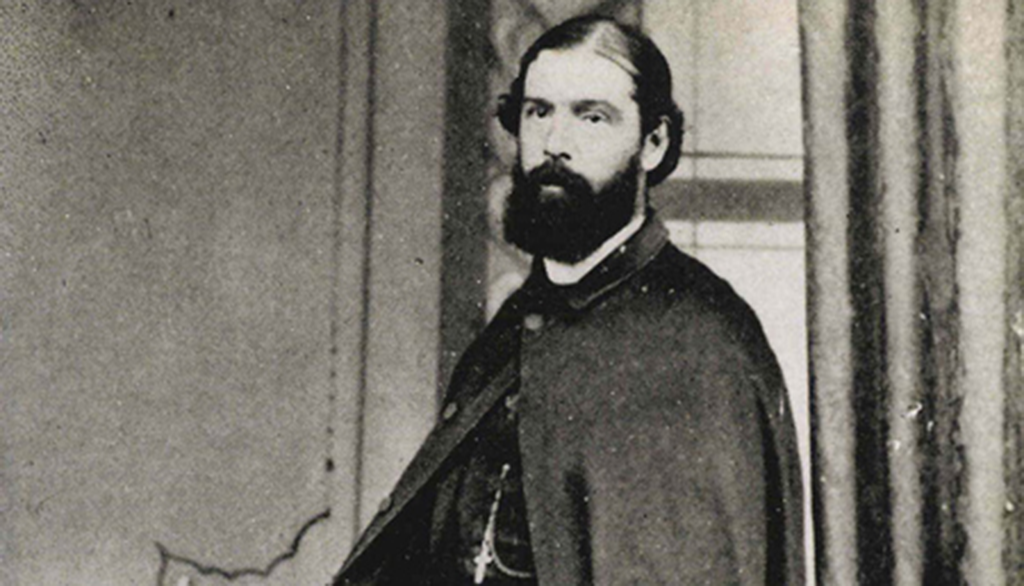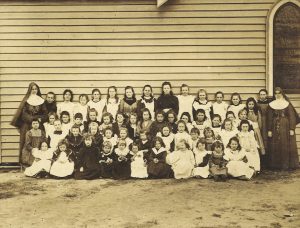
The Christian belief is that all people are equal in God’s sight.
The Christian concept of love of neighbour is starkly different from the self-seeking competitiveness we often find in today’s world. Jesus identified with the poor and marginalised people, whereas current society often highlights the rich and powerful for adulation. Jesus advocated for a society of justice, freedom and peace. It was this type of society, this concept of love of neighbour, of fairness and justice, that Julian Tenison Woods lived and promoted.
Julian was an active community member during his ten years in Penola, South Australia where he supported the District Council and advocated for better roads and for a more reliable mail service. He saw first-hand, and was concerned for the plight of indigenous Australians. He quickly realised this was not a level playing field and he wrote social commentary on this in the major newspapers, criticising the government approach and standing up for the Aboriginal people. Indeed, his strong writing against the stealing of indigenous children and policy refusal to pay their wages, is years ahead of contemporary thinking of the time. He did not stint himself in visiting on horseback the parishioners in his far-flung parish and ministering to them, caring for their needs, both temporal and spiritual.
Aware of the plight of the poor and isolated children, he longed for them to be able to learn about their faith while learning to read and write. Faced with this inequality and unfairness, Julian with Mary MacKillop decided that the only real solution for the problem was to begin there in Penola, a new religious order of teaching sisters to bring catholic education to these children. The schools that Mary MacKillop and Julian established were places where children from every class had a fair and equal chance of succeeding, being prepared for meaningful work, and being valued. The sisters were to show love like Joseph showed Mary and Jesus, and to be at the service of people in need without any distinction.
Many of Julian’s colleagues openly derided his ideas regarding the schools he established and his Sisters of Saint Joseph. Julian was the victim of prejudice, jealousy and uncharitableness. At times he was badly treated by Bishops. Even though he found opposition hard to bear, Julian endured all without an unkind word. He accepted this opposition as a cross to bear for love of Jesus, in the cause of what he believed to be right and just.

I wonder how Julian would deal with the racism, sexism, social snobbery and discrimination in today’s society? I sense he would have believed in “a fair go” for all, especially those on the margins of society. When he wrote in the Instruction on the Rule “never see an evil without trying to remedy it,” he was advocating a better future for every man, woman and child.
Fr Julian lived by the beatitude “blessed are they who hunger and thirst for justice.” For him, love of God and others was paramount, all people were equal, everyone in society was to be treated with fairness and all of creation deserved respect. Not content to live with injustice, Julian responded.
Sr Therese McGarry rsj
[1] Photograph ‘Students and Sisters, Location unknown’ [S122/085] obtained from the Sisters of Saint Joseph Congregational Archives. Used with permission.
